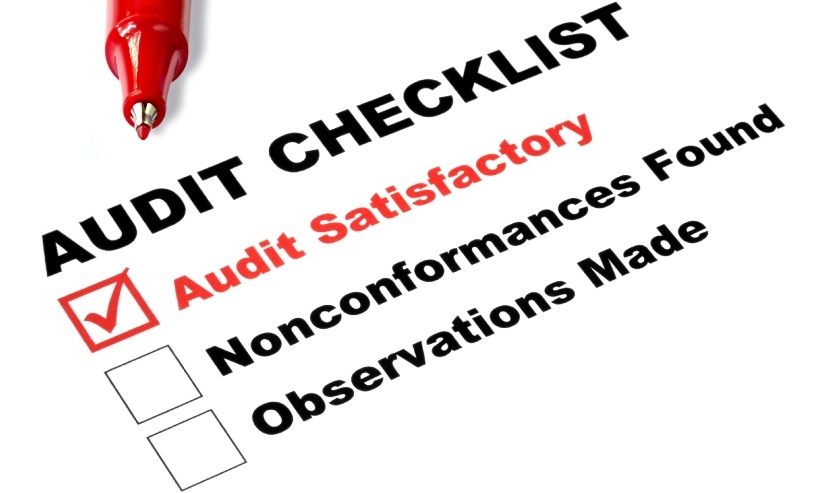Supplier audits grant an opportunity to amass relevant comprehensive information about organizations that leverage your competence when it comes to serving the customers. It is important for assessment of supplier’s Quality Management System that whether it is capable of meeting your requirements or not.
A supplier audit is needed to ensure that:
- Customer receives the product as stated.
- Processes are steady and capable.
- Operations and sequences are in correct order as described.
Supplier audit is not performed for all the suppliers otherwise it will result in waste of resources and will destroy the supplier audit system. It is performed for those suppliers who are new in market or those who failed to provide quality products. Any supplier audit should be conducted based on the risk they have to your business.
Audit team
Auditing is performed by qualified and trained personnel that are capable of using certified auditing guidelines and practices. Selection of auditors mainly depends on the type and criticality of the audit. It is therefore important for the audit team to analyze each and every step of planning course.
Audit scheduling
Audits are planned events and they should be scheduled properly, keeping in view the feasibility of both parties. A proper auditing system requires full attention of auditor and efficient communications with them, which will be very difficult to achieve if the company is battling for time and approach with customers. This will lead to unfavorable results and waste of resources.
Establishing Objectives
It is essential to clearly state the requirements and standards to be used for auditing. These requirements may be:
- Copy of internal procedures.
- The certification to ISO standards.
- Other pertinent managerial requirements.
- Your plan, agenda and procedures.
- Industrial reports.
- Previous audit reports etc.
Supplier audit checklist
A supplier audit checklist is an essential array of questions and queries which are used by the auditors while carrying out the audit. To create a supplier audit checklist it is important to gather all the information about the specific process. Keeping that information in consideration the supplier audit checklist is made to address particular problems that are relevant to supplier and project. There is no need to present this checklist to supplier as these are auditor’s guidelines. It is a structure of questions for providing an organized system for productive audit, so that no information is missed during the audit process.
A productive supplier audit checklist should contain the following:
- Product Summary
- Registration of supplier to ISO
- Purchased material verification
- Contract analysis
- Product amassment
- Procedure followed
- Trainings
- Nonconformance reporting
- Equipment used
- Facilities utilized
- Personnel prowess examination
- Process inputs and outputs
- Control and support procedures
- Performance indicators
There are usually 4 columns in the supplier audit checklist.
- Audit Questions
- Result (findings)
- Evidence (proofs)
- Expectations (what to look for)
Audit questions
Audit questions are the questions to be asked while conducting audit. It provides ease for the auditor to ask all the relevant questions and record findings against them in the checklist. Some examples of the questions are:
Equipment
- Which equipments are needed for the operation?
- Do you have a proper evidence of complete perpetuation of the equipments used?
- Is there proper maintenance of equipment?
- Are the equipments calibrated?
Quality management system
- Has the company established a QMS that is compliant to ISO 9001?
- Does the company have ISO 9001 certification?
- Does the company have updated quality records?
- Does the company carryout internal audit properly?
- Does the company perform root cause analysis as and when required?
- Has the organization documented all the procedures, instructions and specifications etc?
Purchasing
- Has the company established a separate department for purchase and procurement of raw materials?
- Has the company approved specifications for procurement?
- Is the purchasing staff capable of communication with suppliers?
- Does the organization maintain records of all the purchases?
Quality control
- Has the company established an inspection team to inspect quality and conformance of incoming materials with set standards?
- Is the Quality control staff adequately trained?
- Has the company established a separate area for inspection of incoming raw materials?
- Does the organization maintain quality control records efficiently?
- Has the company established the manufacturing plan before starting the operation?
Storage and packaging
- Are the storage areas properly cleaned and well equipped?
- Are there proper procedures and system for storage and preservation of products?
- Are the stored products inspected regularly for deterioration?
Non conformance
- Is there a separate area for non conforming substances or products to avoid there use?
- Is the re procedure material retested to check its conformance to recognized standards?
- Has the company formed a system to notify customers about a non conforming product that has been shipped already?
Conclusion
A supplier audit checklist is really necessary part for a successful audit and is defining what to cover during the audit. It also helps as support to ensure areas don’t get neglected during the audit.
